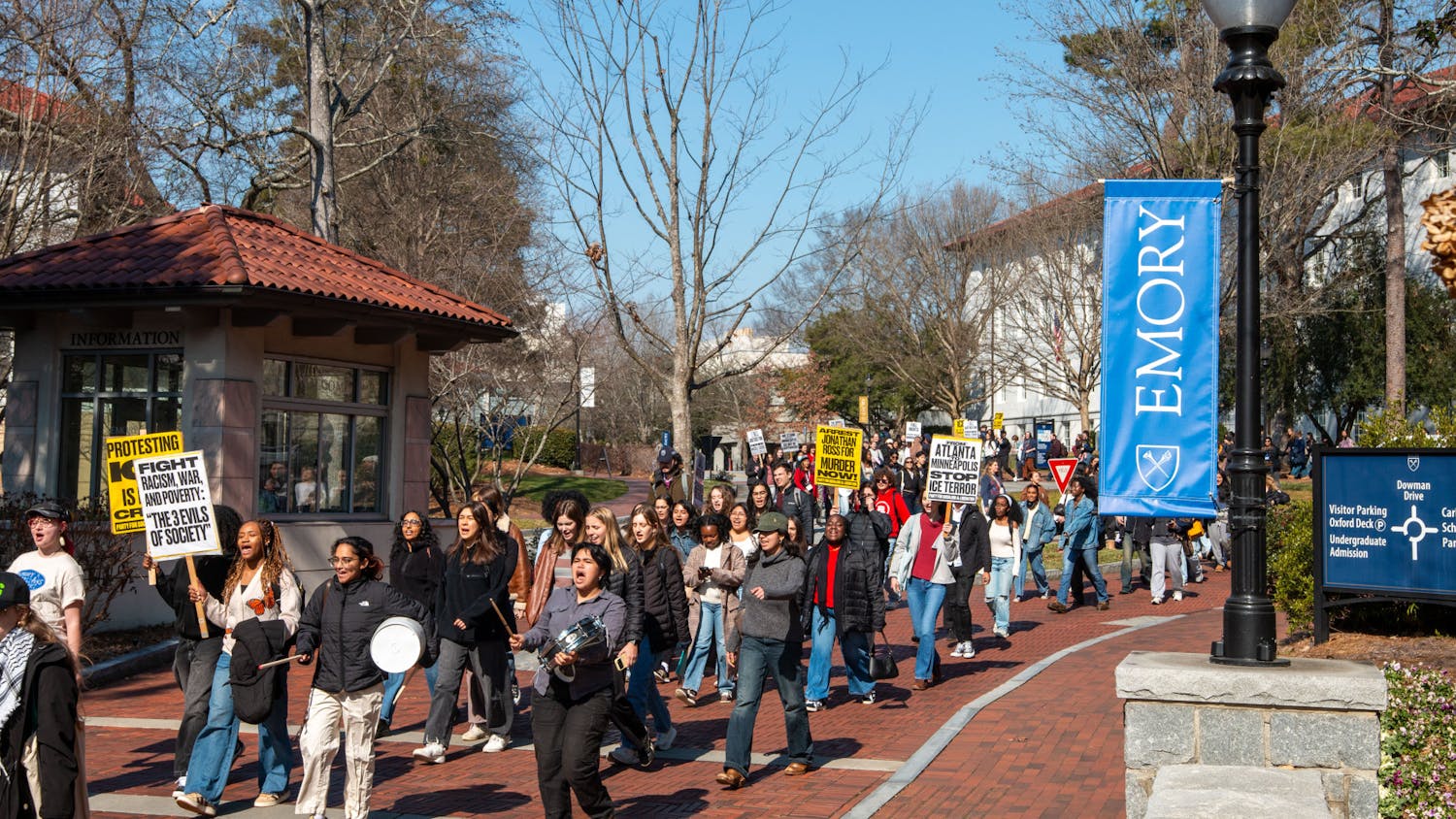
The Student Government Association (SGA) amended the elections code to allow SGA election candidates to campaign with running mates starting in 2016, amended its Constitution and voted to give the TableTalk initiative a University-wide charter.
The Code of Elections, which is a document that outlines the rules and regulations for University elections, currently disallows candidates to run on the same ticket or campaign together and also disallows “party candidacy,” or running as part of a political party. College junior and SGA President Jon Darby presented a bill that would amend the Code of Elections to allow joint candidacy.
The text of the bill argues that the current rules could yield a situation where a President and Vice President are elected who vastly disagree with each other or have distinct or opposing visions. The bill stipulates that candidates for President and Vice President of SGA can participate in party or joint candidacy.
However, the text does not specify whether the candidates are required to choose a running mate, meaning some tickets would have two candidates and others just one. Some members of the Legislature, such as Goizueta Business School senior Jaanki Patel, were concerned that requiring a running mate would dissuade people from running.
SGA Campus Services Committee Chair and College sophomore Max Zoberman advocated for requiring a running mate, stating that not doing so would defeat the purpose of the bill since it could still yield a President and Vice President that have opposing visions.
College senior and SGA College-wide Representative Aaron Tucek suggested starting a broader conversation about whether Legislatures should have cohesive agendas and platforms and allowing legislative candidates to affiliate themselves with a ticket.
However, SGA Sophomore Representative and College sophomore Cameron Duncan quickly responded with disagreement.
“Our national government doesn’t get anything done because they run on a platform together,” Duncan said.
But the overwhelming concern among legislators with requiring running mates was that strong candidates who did not have a running mate in mind would not be allowed to run.
While College senior and SGA Senior Representative Cara Ortiz thought allowing joint candidacy was a good idea, she shared some concerns.
“It’s a little dangerous to not allow the student body to pick and choose the two most important executives of the student body,” Ortiz said. “The student body should be able to vote on them individually.”
The Legislature passed an amendment that changed the language so that it did not require candidates to choose a running mate.
The amended bill passed unanimously, with two abstaining, for a vote of 22-0-2.
SGA also voted to give the TableTalk Initiative, a student organization that facilitates conversations between members of the community that don’t normally interact, a University-wide charter under SGA.
SGA Chief of Staff and College junior Adam Goldstein, who also helped found TableTalk, authored the bill and said that the organization spans across all divisions, meaning it qualifies for University-wide status and that participation in CampusCouches, one of the campaigns of the TableTalk initiative, usually includes around 10 graduate student members.
Goldstein added that chartering for the organization is necessary in order to sustain itself after the current SGA administration, who has provided substantial funding for the organization from its executive account, leaves office.
Some members of the Legislature were concerned that TableTalk does not necessarily need a University-wide charter to sustain itself.
Only four other organizations have University-wide charters, which are Student Programming Council (SPC), Media Council, Outdoor Emory Organization (OEO) and Club Sports.
Goldstein said that having a charter would allow them to apply for funding through the standard budgeting process for all chartered organizations.
SGA Student Life Committee Chair and College junior Elyse Lee asked Goldstein whether having a charter under College Council (CC), which oversees clubs in the College, would affect their activities.
Goldstein responded affirmatively, stating that if TableTalk were funded under CC, it would be ineligible for funding if it involved students from other divisions.
The Legislature passed the bill unanimously with a vote of 24-0-0 and also agreed to fund TableTalk’s proposed 2015-2016 budget of $3,450.
Another student organization, TEDxEmory, also asked SGA for funding for its annual student-organized speaker event this weekend.
However, according to SGA Vice President for Finance and College senior Patrick O’Leary, TEDxEmory had leftover funds in an account that made up for the original amount of funds it needed. Originally TEDxEmory asked for around $6,000 from SGA, but the account contained around $7,000.
Instead, the Legislature voted to amend the bill to give TEDxEmory $1,500 in overdraft protection funds. This means that TEDxEmory has $1,500 in case they over-withdraw from their existing accounts so they can guarantee free admission to the TEDxEmory event for all students.
The bill passed unanimously without dissent.
Finally, the Legislature also passed a bill that would amend the Constitution to ensure that all “Issues of Significance” are subject to public scrutiny. The bill defines “Issues of Significance” as changes to the Constitution, bylaws, codes, governing documents related to fee collection, how offices are chosen and the number of divisional councils.
The bill proposes that changes to any of the listed items should be appropriately publicized to the student body through email informing students of the various stages in the SGA bill-passing process.
The bill also proposes that these issues be subject to a public forum for the issue to be debated, which ought to also be publicized to the student body.
The Legislature voted to pass the bill unanimously. This amendment will be subject to a student-wide referendum because it amends language in the Constitution.
Legislature Changes Code of Elections
Photo by Luke White









